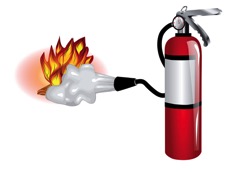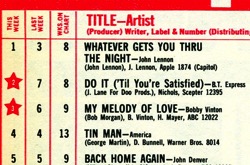Who Am I?
 Here was the Grasshopper’s cryptic message this morning: “The time spent defending ‘who you are’ is inversely proportional to the amount of time you spend noticing how things are.”
Here was the Grasshopper’s cryptic message this morning: “The time spent defending ‘who you are’ is inversely proportional to the amount of time you spend noticing how things are.”
I got to notice that I didn’t get to spend too much time contemplating who I am while shoveling feet of snow. Reality has a way of grounding you to the way things are.
Who am I in relation to the world? is too big a question. Who am I in relation to what’s right in front of me? gets me closer to who I am.
I am the person doing whatever it is I’m doing in the moment.
If my focus is out there defending who I am to the world, the less I am focused on what’s really happening.
The global “Who I am” is a fantasy. It’s a created image that we’ve made up to measure how we stack up against others.
Just notice how much time we spend defending that image. Every moment spent in that pursuit is a moment divorced from reality.
You will get closer to who you are by noticing what you do, not what your PR says you do.
“I am a snow shoveler” was a more accurate assessment of who I was yesterday than the many mental flights of fancy that my mind made up.
“Snow shoveler” isn’t a permanent label for me but it did accurately define me for the time I was shoveling.
I will say that who you really are is much deeper than what you do, but focusing on what you do gets you closer to who you are than any imaginings of who you are.
Who you are is the light and life force that animates your existence. That’s you in its purest form. When we claim that we’re only a tiny subset of that light, we diminish who we really are. When that subset is a mental fantasy, we have really gone far afield.
A practice that will get you back to appreciating who you really are is to do something focused – a math problem, a rock climb, moving tons of snow with a plastic shovel. In short, put your focus on what you are doing. This has a way of getting us to notice and appreciate our life force which is responsible for us getting things done.
The more we are focused on actual doing, the less time we spend imagining that we’re doing something or being somebody.
My reminder is to be as focused as a pharmacist when filling a prescription when you are doing whatever you have committed to do. It will get you closer to reality and, in turn, closer to the real you.
All the best,
John
Be Sociable, Share!

 “Where you are going depends on where you are.” So said The Grasshopper early this morning.
“Where you are going depends on where you are.” So said The Grasshopper early this morning. I can’t know this for sure but it seems like everything in the human experience is temporary, with the exception of love.
I can’t know this for sure but it seems like everything in the human experience is temporary, with the exception of love. The Grasshopper offered this up this morning: “Your most conditioned reaction is your largest prejudice.”
The Grasshopper offered this up this morning: “Your most conditioned reaction is your largest prejudice.” Have things gotten stale? The following is a formula for freshening up. Note: It’s nice to know about the formula but it only works if we use it.
Have things gotten stale? The following is a formula for freshening up. Note: It’s nice to know about the formula but it only works if we use it. Who doesn’t have problems? Dead people, of course.
Who doesn’t have problems? Dead people, of course. Did you ever notice when you get an emotional feeling, you attach meaning to it?
Did you ever notice when you get an emotional feeling, you attach meaning to it? If there are two bigger resolution killing words than “I’m gonna,” I haven’t heard them yet.
If there are two bigger resolution killing words than “I’m gonna,” I haven’t heard them yet. We’re all familiar with the phrase “Whatever gets you through the night.” It was even a popular song in the 70s. The problem with the phrase and the philosophy behind it is that it’s rarely a long-term solution.
We’re all familiar with the phrase “Whatever gets you through the night.” It was even a popular song in the 70s. The problem with the phrase and the philosophy behind it is that it’s rarely a long-term solution.